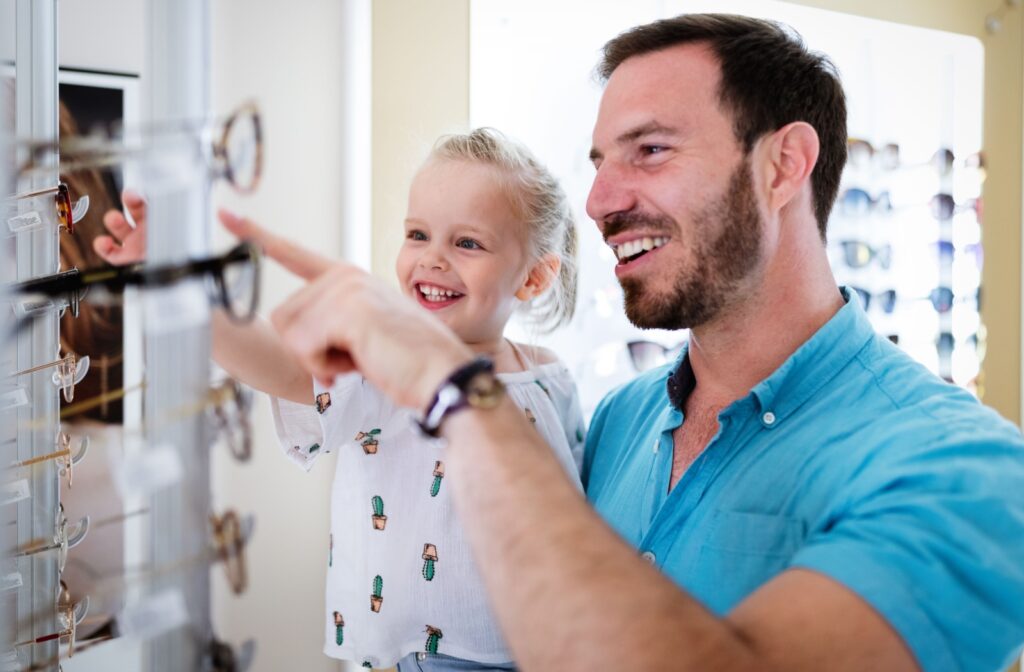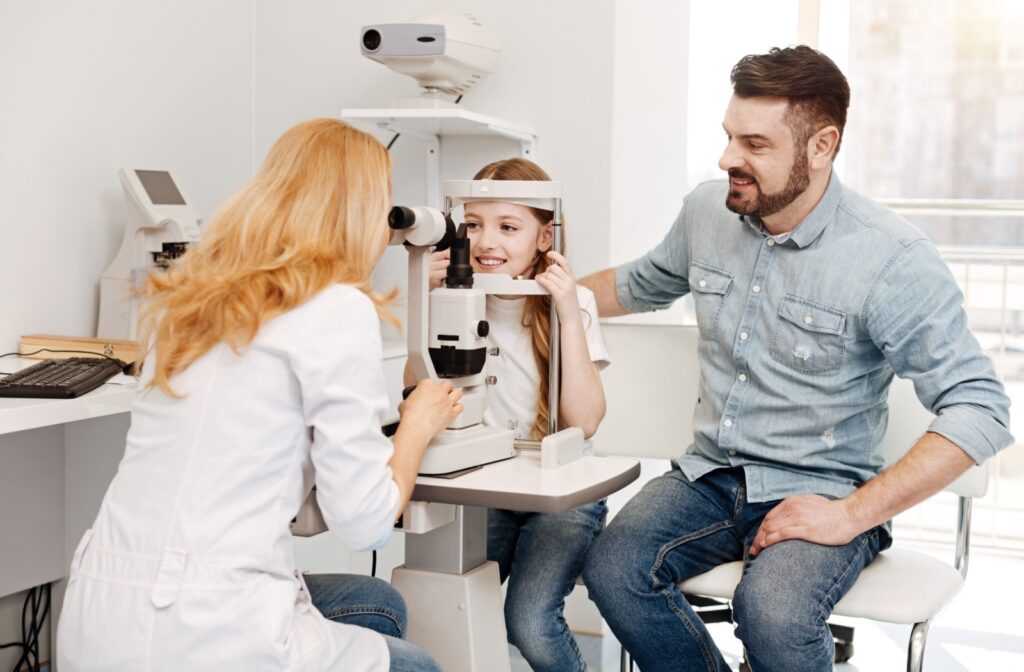When was your last eye exam? If it’s been more than a couple of years—or you’re not quite sure—it might be time to schedule one. Eye exams aren’t just about updating your glasses; they play a key role in monitoring your overall eye health and spotting potential issues early.
Many common eye conditions develop without noticeable symptoms at first. That’s why routine exams are so important at every age. Knowing how often to book a checkup can help protect your vision and keep your eyes feeling great.
Why Regular Eye Exams Matter
Your eyes do more than help you see—they are your windows to the world. But because changes in your vision and eye health can sneak up on you, regular eye exams are an essential part of staying well and seeing well.
Proactive care that goes beyond updating your prescription goes a long way. Whether you’re a parent checking in on your child’s vision or an adult managing screen time fatigue, we’re here to support your sight through every stage of life.
Eye Exams for All Ages
Eye exams aren’t one-size-fits-all. As you grow and change, so should your eye care.
Children need regular eye exams to support their development. Vision plays a huge role in learning, as more than 80% of classroom tasks rely on sight. Spotting concerns like myopia (nearsightedness) or eye coordination issues early on can help prevent academic and behavioural challenges later.
People often don’t notice vision changes right away. Many eye conditions, like glaucoma or age-related macular degeneration (AMD), develop silently over time. Routine exams can help detect these issues before they affect your quality of life.
Older adults are at a higher risk for eye diseases, making frequent eye check-ups even more important. Annual exams can play a vital role in preserving their independence and long-term vision.
What Can an Eye Exam Detect?
A comprehensive eye exam is about so much more than seeing 20/20. During your visit, your optometrist will assess a wide range of visual and health factors, including:
- Refractive errors like myopia, hyperopia, and astigmatism
- Eye teaming and focusing concerns
- Cataracts and cloudiness
- Glaucoma and intraocular pressure
- AMD
- Diabetic retinopathy
- High blood pressure or systemic disease indicators
- Signs of autoimmune or neurological conditions
In fact, your optometrist may spot early signs of health conditions like diabetes, multiple sclerosis, or hypertension—even before symptoms appear.
Is it Time for an Eye Exam?
Not sure if it’s time to book? While general guidelines help, it’s important to listen to your body. Consider scheduling an eye exam if you experience:
- Frequent squinting, eye rubbing, or headaches
- Trouble seeing clearly at night or with light changes
- Blurry vision or difficulty focusing
- Dry, watery, or itchy eyes
- Flashes of light or a sudden increase in floaters
- Trouble reading, writing, or concentrating
Sometimes, these symptoms point to simple changes in your prescription, but they can also be early warning signs of something more serious.
How Often Should You Visit the Optometrist?
The Canadian Association of Optometrists recommends a varying eye exam frequency depending on your age.
Children (0–19 Years)
- First eye exam between 6–9 months
- 1 exam between ages 2–5
- Annual exams for ages 6 to 19
Adults (20–64 Years)
- Every 2 years, or more often if you wear contact lenses or have risk factors
Seniors (65+ Years)
- Annually, as age increases the risk of eye disease
Keep in mind that these are general guidelines. If you’re managing an existing health condition or noticing new symptoms, more frequent visits may be recommended. Talk to your optometrist to find out what’s recommended for you.
What Happens During an Eye Exam?
The details of an eye exam can differ based on your doctor, age, and overall eye health, but they typically include the following elements:
Before the Exam
Your optometrist may ask about:
- Any vision changes or symptoms
- Your medical and family history
- Current medications
- Your glasses or contact lenses (bring them with you)
This helps personalize your experience and better understand your overall eye health.
During the Exam
Your optometrist will perform a variety of tests to check:
- Visual acuity (how clearly you see)
- Refraction (to determine your prescription)
- Eye movement and alignment
- Peripheral vision
- Eye pressure (to screen for glaucoma)
- Internal eye health, including the retina and optic nerve
Some tests, like dilation, help your doctor get a clearer view of the back of your eyes. Don’t worry—your optometrist will walk you through it all with care and clarity.
After the Exam
Once the exam is complete, your eye doctor will go over your results together, answer your questions, and share recommendations. That could mean a new glasses prescription, dry eye advice, or a follow-up plan tailored to your needs. If required, they may refer you for specialty care or more in-depth testing.

Book Your Eye Exam & See the Difference
Your vision is too important to take for granted. Whether you’re due for a routine checkup or have noticed changes in how you see, booking an eye exam is a simple step toward protecting your long-term eye health. Regular visits can help detect issues early, keep your prescription up to date, and give you peace of mind.
At Kennedy Eye Clinic, we’re here to make your experience comfortable, thorough, and personalized. Book your appointment today.



